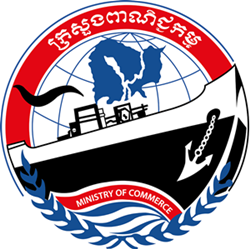Issue Description
The signing of RCEP, of which Cambodia is a participant, represents an immense opportunity for deeper services liberalisation in e-commerce, financial, telecom, and among others, professional services across ASEAN and the wider region.
Regarding the ongoing services liberalisation among ASEAN countries, we notice an interesting trend at the negotiating table: countries are moving away from adopting positive list approaches to regulate the opening of services, and towards using the negative list approach instead.
This means that during negotiations, whereas with the previous approach, only certain service sectors within the party countries were implied to be open to trade and investment, with the new negative list approach, the standard starting negotiating position between countries is that they will have most sectors open for trade and investment, and those that don’t need to be specifically excluded on a list. This saves negotiators time and allows for greater scope of services liberalisation between parties.
For Cambodia, this shift opens up major opportunities in the development of further liberalisation of services, specifically the export of digital services from Cambodia, in areas where the country holds competitive advantages. Export of services refers to the provision of services by a company or individual in one country to a client or customer in another country. Examples of exported services include consulting, financial services, software development, and tourism.
For example, let’s consider some of Cambodia’s emerging services sectors, such as the provision of HR, accounting, medical, dentistry, and IT services. The country’s notable comparative advantages in these sub-sectors include a high level of proficiency in the English language in the larger cities—where these services are usually provided—relatively low labour costs, a young and digitally-savvy population, and relative proximity to the major regional travel and tourism hubs of Thailand, Singapore, and Vietnam.
In staying true to its major trade policy document, the Trade Integration Strategy Update (CTISU) 2019-2023, the Royal Government of Cambodia has a major opportunity to further its economic diversification, service and digital service promotion, and overall regional trade integration agendas, by recognising the importance of facilitating emerging service exports from Cambodia.
Impact on business
If Cambodia fails to diversify its exports into services, it may miss out on several potential benefits. Firstly, the country’s over-reliance on a few export sectors, such as garments, can make it susceptible to external factors such as changes in global demand, trade policies, and market competition. This can lead to economic instability, job losses, and a lack of investment in other sectors.
Secondly, a lack of diversification can lead to a lack of job opportunities and skills development in other sectors, which can hinder the country’s economic development and limit its potential for growth.
Thirdly, services exports can provide higher-paying and more skilled jobs, contributing to a more equitable and sustainable economic development trajectory. Failure to diversify into services may result in a lack of investment in the country’s digital infrastructure and hinder its ability to attract foreign investment.
Finally, a failure to diversify into services may result in a lack of innovation and competitiveness in the global market, limiting the country’s ability to compete with other countries in the region.
Recommendation
- Facilitate the emergence of new service exports.
We respectfully recommend that the RGC facilitate the emergence of new service exports, including in areas such as HR, accounting, medical, dentistry, and IT, by:
- Pushing for the implementation of service liberalisation commitments among RCEP signatories;
- Considering mainstreaming service liberalisation in future service trade integration strategies;
- Consulting with the private sector to discuss awareness-raising venues on the opportunities for Cambodia’s service and digital service exports.
By promoting the diversification of its service and digital service exports, Cambodia has the opportunity to establish itself as a regional hub for the provision of emerging services in an era of globalisation and cross-border flows. The spillover effect on enhancing the nation’s human capital, particularly its levels of professional skills, would be considerable, further solidifying the country’s status as a middle-income economy and, hopefully, providing a springboard for higher-value-added activities in both services and manufacturing.
Royal government of Cambodia
Initiative from Eurocham: The issue has been raised by the Tax Committee within The White Book edition 2024 in the Recommendation No. 11.

National Counterparts

Ministry of Commerce

